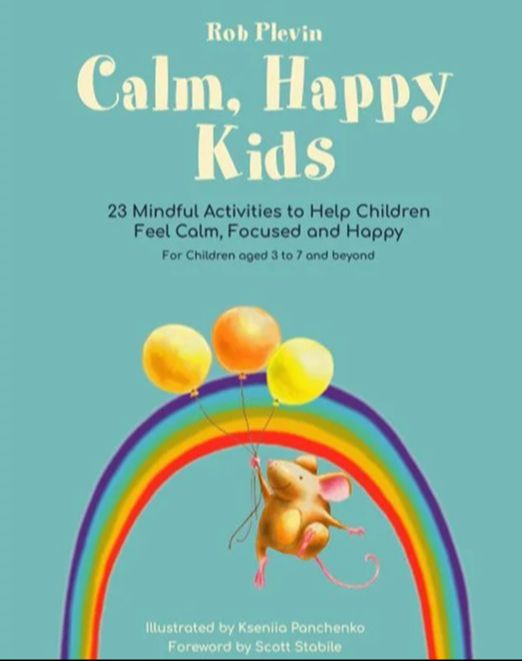FREE
Live Web Class for Overwhelmed Parents of Kids age 8-18
How to Stop ADHD Meltdowns
Reduce Parental Overwhelm & Daily Meltdowns—in 7 Days or Less
A practical, evidence-based workshop for parents who are exhausted by constant battles, emotional outbursts, homework stress, and day-to-day chaos — and who want to bring calm, cooperation, and connection back into family life.
Parents and teachers who use the Needs-Focused ADHD System typically experience:
⭐ Immediate Reduction in Meltdowns
Because you’re no longer fighting the behaviour — you’re calming the brain behind it.
⭐ More Cooperation Without Power Struggles
Kids say “yes” more often when they feel understood and supported.
⭐ Better Emotional Regulation
You’ll know exactly what to do when emotions spike.
⭐ Improved Focus & Task Completion
Simple adjustments that align with how ADHD brains engage.
⭐ A More Peaceful, Connected Home
Less shouting. Less shame. More trust. More laughter.
⭐ A child who finally feels understood
Which is the foundation for every other breakthrough.
When is it?
Monday 15th December, 8:00pm UK time.
00
DAYS
00
HOURS
00
MINS
00
SECS
Register Here
By filling this form in you agree to us sending you updates and reminders about this class as well as information on our programs. You can opt out any time.
🧠 Why This Works
(When Nothing Else Has)
If you’re raising a child with ADHD, you already know how exhausting it can be.
You try routines… reminders… rewards… charts… consequences…
and yet the same patterns keep returning The behaviour doesn't change. Well, not for long.
The problem is that most of us were taught to try and solve these problems in a way that doesn't work.
We've always been told to focus on the resulting behaviour. I.e. we look for responses and strategies we can use when they...
👉 Interrupt mid-conversation
👉 Are restless and constantly fidgeting
👉 Zone out halfway through tasks
👉 Have an emotional outburst that seems to come from nowhere
That’s like trying to catch the horse after it’s bolted.
The real work needs to start before the behaviour.
And we do that with regulation.
You see, modern research gives us a very different understanding of ADHD.
Brain-imaging studies (Castellanos, 2021; Volkow et al., 2023) show that ADHD brains are wired for stimulation, safety, and connection.
When those essential needs aren’t met, the brain literally goes searching for ways to either “wake up” or feel secure again.
That’s why you see the fidgeting, the interruptions, the impulsive reactions, the constant movement —
they’re not defiance.
They’re self-regulation attempts.
And when we respond with more control — lecturing, punishment, withdrawal of privileges, raised voices, tighter rules — without addressing what the brain is actually asking for…
The stress goes up.
The behaviour gets worse.
Everyone ends up overwhelmed.
Whereas, when we meet the need behind the behaviour, everything changes.
And that's what this free class will give you.
When you understand how these differences show up at home, you can create instant improvements in behaviour, cooperation, and family calm.
This workshop gives you practical tools you can use the same day — not theory, not vague advice, not “try harder.”
Everything is designed to work with your child’s wiring, not against it.
Who's Presenting It?
Rob Plevin is a former senior special education teacher, behaviour consultant, mindfulness-based coach and registered psychotherapist in training. You can find his school-based work here: www.needsfocusedteaching.com
"I have been obsessed with finding ways to help improve child behaviour for over 30 years. I started out as a youth worker for young people in crisis before becoming a senior Special Education teacher and later a behaviour consultant and teacher trainer working with schools and universities all over the world. I've written a few books on child behaviour and am well known for creating practical systems for teachers, carers and parents to help them improve their management of inappropriate child behaviour. Over the last few years I have enhanced my approach and placed more emphasis on emotional regulation and connection. The process is now even more effective and the results are deeply rewarding for both adults and children alike."


Rob's book - Calm, Happy Kids - made it into Hello! Magazine's list of 18 best children’s books about anxiety for kids who worry.
Parents say: "This book is targeted at children but suitable for all, even adults will find an internal calm and happiness with the activities represented.

"My ex-partner and I took coaching with Rob because we could no longer cope with our teenage daughter. She had been excluded from school and refused to go to college. Her behaviour at home was out of control – she was doing exactly what she wanted and we were desperate for help. In just one session Rob introduced us to an approach wwe hadn't considered. He identified the main areas we needed to change in our behaviour and gave us a very simple process to follow. We could not believe the difference this made to her attitude and the way she responds and speaks to us. She has even now gone back to college and is so much more pleasant. Thank you! "
S. C.
How it all began
Christmas 2008. I was at a small gathering in Oslo, Norway — a friend-of-a-friend kind of thing — when I met a mother who looked absolutely exhausted.
She told me she had a 14-year-old son with ADHD and felt like she was living in constant crisis mode.
They argued daily.
Homework took hours.
He exploded over small things.
He couldn’t focus, wouldn’t listen, and seemed permanently overwhelmed.
She was heartbroken and exhausted. She told me she was out of ideas and that she was worried he would have to be taken out of school.
I wasn’t there to coach her, I was on holiday. But as we talked, I shared a few ideas from a very early, very rough version of my system — things I’d been experimenting with in classrooms for years.
I sketched it all on a napkin and she had an aha moment right in front of me.
“So his behaviour is as much down to me as it is him. It's his environment. That's something I CAN change!” she said with a look of joy.
Two weeks later, the situation was very different.
“It’s working. I can’t believe it.
He’s calmer. We’re arguing less.
And for the first time in a long time… he's listening to me.”
What changed?
Everything.
But it started with something very simple...
She understood his behaviour.
Once she realised that his impulsivity, emotional storms, and difficulty focusing were not defiance…
but signals of unmet emotional and neurological needs…
...Everything started to shift.
That night in Oslo is when the Needs-Focused ADHD Solution was born.
Since those early days I've refined my Needs-Focused ADHD Solution a great deal. I've blended it with my training as a psychotherapist and more than 30 years training and teaching experience.
This system doesn’t rely on punishments, harsh discipline, or “tough love.”
It works because it’s based on neuroscience, psychological safety, and human needs.

